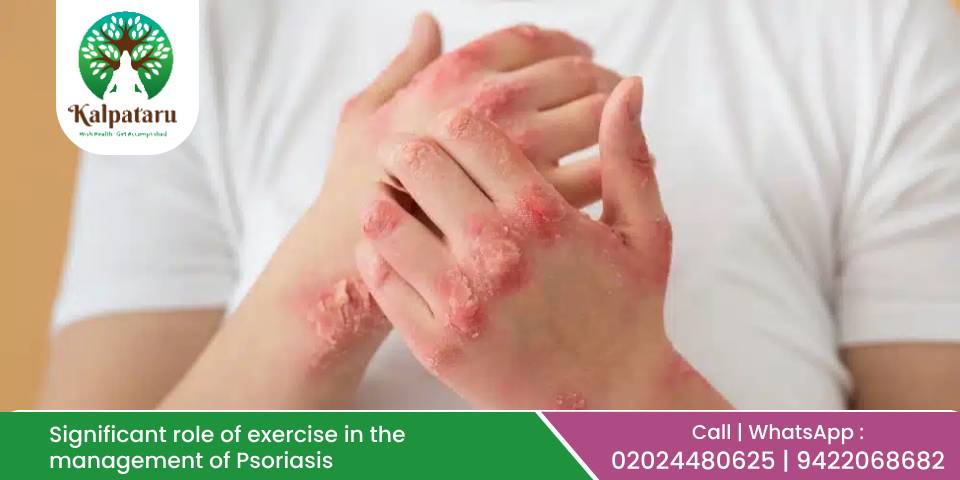What is Psoriasis?
Psoriasis is a chronic autoimmune condition characterized by the rapid growth of skin cells, leading to thick, red, scaly patches that can be itchy and painful. It affects approximately 2-3% of the global population, translating to millions of individuals worldwide. The condition not only has physical implications but also poses significant psychological challenges for those affected. Many patients experience social stigma, impacting their mental health and overall quality of life, as they may avoid certain clothing or social situations due to their visible symptoms.
Physical and Mental Burden of Psoriasis:
Living with psoriasis can lead to substantial physical discomfort and emotional distress. Patients may struggle with severe itching, pain, and discomfort from the lesions, which can hinder daily activities. The psychological impact is equally profound; individuals may face anxiety, depression, and social isolation, further exacerbating their condition. The fear of judgment can prevent them from participating in social activities or wearing certain clothes, leading to a cycle of decreased self-esteem and mental health challenges.
For more information and treatment modalities watch our informative video
Complications of Psoriasis:
When psoriasis becomes chronic, it can lead to various complications, impacting multiple systems within the body. Here are some of the key complications:
- Joint Issues: Psoriasis can trigger psoriatic arthritis, a painful condition affecting the joints. This can lead to swelling, stiffness, and reduced mobility.
- Increased Risk of Gout: Patients with psoriasis have a higher likelihood of developing gout, a type of arthritis caused by the accumulation of uric acid crystals in the joints.
- Ocular Problems: Psoriasis can affect the eyes, leading to conditions such as conjunctivitis or uveitis, which can cause pain and vision problems.
- Cardiovascular Issues: There is an elevated risk of cardiovascular diseases, including coronary artery disease, hypertension, and dyslipidemia, among psoriasis patients.
- Cancer Risk: Individuals with psoriasis may have a higher likelihood of developing certain types of cancer, underscoring the need for regular health monitoring.
- Metabolic Disorders: Conditions such as diabetes, obesity, and fatty liver disease are more prevalent among psoriasis patients, often linked to the inflammation associated with the disease.
Given these complications, a holistic approach, including exercise, is vital for managing psoriasis and its associated risks.
The Role of Exercise in Managing Psoriasis:
Exercise plays a crucial role in managing psoriasis and its complications. Regular physical activity can significantly improve insulin sensitivity and reduce insulin resistance, which is essential for managing metabolic disorders. Exercise helps in weight management, lowers blood pressure, and improves lipid profiles—all factors that can help mitigate the risks associated with psoriasis.
Incorporating moderate-intensity exercises such as cardio, weight training, and even yoga can have profound benefits. Yoga, in particular, aids not only in physical health but also supports mental well-being through relaxation techniques, breathing exercises, and mindfulness practices. These practices can help alleviate stress, a known trigger for psoriasis flare-ups.
Mental Health Benefits of Exercise:
The mental health benefits of exercise cannot be overlooked. Regular physical activity releases endorphins and serotonin, which help reduce pain and improve mood. This positive impact on mental health can alleviate some of the social anxieties faced by individuals with psoriasis, encouraging them to engage more fully in their lives.
Moreover, yoga and mindfulness exercises can significantly improve overall well-being by reducing cortisol levels, which is a hormone associated with inflammation. By managing inflammation through exercise and a balanced lifestyle, individuals can experience a reduction in psoriasis symptoms and enhance their quality of life.
Establishing a Regular Exercise Routine:
Consistency is key when it comes to exercise. Aim for at least 5-6 days of moderate activity each week, balancing cardio, strength training, and flexibility exercises like yoga. Avoid overly strenuous workouts, as they may lead to injuries or exacerbate existing joint issues, especially in those with psoriatic arthritis.
Regular physical activity not only enhances the body’s immune response but also helps combat inflammation, making it a vital component of psoriasis management. Engaging in activities that promote joy and relaxation can also foster a more positive mindset, further supporting mental health.
Conclusion:
Psoriasis is more than just a skin condition; it has far-reaching effects on both physical and mental health. By understanding the complexities of this autoimmune disease and the importance of a comprehensive management plan—including exercise, diet, and lifestyle changes—patients can take control of their health. The integration of regular physical activity, particularly moderate exercises and yoga, can lead to significant improvements in both symptoms and overall well-being. Start incorporating these practices today to pave the way for a healthier, happier life with psoriasis.
Dr. Manoj Deshpande and Dr. Aparna Deshpande at Kalpataru Ayurvediya Chikitsalaya™ Clinic provide the best Ayurvedic Treatment for Psoriasis & various diseases in Pune, Maharashtra. For more information about our comprehensive treatment options, or to requestan appointment with the best Ayurvedic Doctor in Pune, call +919422068682 / +919764837167 / 020-24480625 or Click on Book an Appointment.

